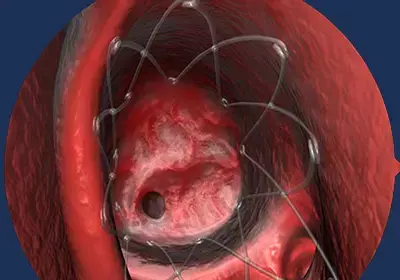- Home
- Medical news & Guidelines
- Anesthesiology
- Cardiology and CTVS
- Critical Care
- Dentistry
- Dermatology
- Diabetes and Endocrinology
- ENT
- Gastroenterology
- Medicine
- Nephrology
- Neurology
- Obstretics-Gynaecology
- Oncology
- Ophthalmology
- Orthopaedics
- Pediatrics-Neonatology
- Psychiatry
- Pulmonology
- Radiology
- Surgery
- Urology
- Laboratory Medicine
- Diet
- Nursing
- Paramedical
- Physiotherapy
- Health news
- Fact Check
- Bone Health Fact Check
- Brain Health Fact Check
- Cancer Related Fact Check
- Child Care Fact Check
- Dental and oral health fact check
- Diabetes and metabolic health fact check
- Diet and Nutrition Fact Check
- Eye and ENT Care Fact Check
- Fitness fact check
- Gut health fact check
- Heart health fact check
- Kidney health fact check
- Medical education fact check
- Men's health fact check
- Respiratory fact check
- Skin and hair care fact check
- Vaccine and Immunization fact check
- Women's health fact check
- AYUSH
- State News
- Andaman and Nicobar Islands
- Andhra Pradesh
- Arunachal Pradesh
- Assam
- Bihar
- Chandigarh
- Chattisgarh
- Dadra and Nagar Haveli
- Daman and Diu
- Delhi
- Goa
- Gujarat
- Haryana
- Himachal Pradesh
- Jammu & Kashmir
- Jharkhand
- Karnataka
- Kerala
- Ladakh
- Lakshadweep
- Madhya Pradesh
- Maharashtra
- Manipur
- Meghalaya
- Mizoram
- Nagaland
- Odisha
- Puducherry
- Punjab
- Rajasthan
- Sikkim
- Tamil Nadu
- Telangana
- Tripura
- Uttar Pradesh
- Uttrakhand
- West Bengal
- Medical Education
- Industry
Corticosteroid-Eluting Sinus Stents tied to post operative infections, Finds study

According to recent research, investigators have found out that there are certain adverse events associated with corticosteroid-Eluting Sinus Stents out of which the most commonly reported include postoperative infection, including multiple cases of fungal infection, followed by migration of the stent.
The study is published in the SAGE Journals.
Corticosteroid-eluting stents (CESs) are increasingly used after endoscopic sinus surgery to reduce the need for revision surgery, but their use is not without risks.
Therefore, Vishal Narwani and colleagues from the
Division of Otolaryngology, Department of Surgery, School of Medicine, Yale University, New Haven, Connecticut, USA conducted the present study to describe adverse events related to CESs.
The authors carried out a retrospective cross-sectional study. The US Food and Drug Administration's MAUDE database was queried for reports of adverse events involving the use of CESs approved by the Food and Drug Administration, including Propel, Propel Mini, Propel Contour, and Sinuva.
The following were results reported-
a. There were 28 reported adverse events in total, with all events being related to the Propel family of stents and none related to Sinuva stents.
b. Overall, 22 were categorized as patient-related adverse events and 6 as device-related events.
c. The most common adverse event was related to postoperative infection, accounting for 39% (n = 11) of all complications.
d. Four of these patients developed periorbital cellulitis, and 5 developed a fungal infection.
e. The second-most common adverse event was migration of the stent, representing 21% of all complications (n = 6).
f. Overall, 8 patients (29%) in our cohort required reintervention in the operating room, with subsequent removal of the CES.
Hence, it was concluded that "The most commonly reported adverse events were postoperative infection, including multiple cases of fungal infection, followed by migration of the stent."
However, an increased awareness of the complications associated with CESs can be used to better inform patients during the consenting process as well as surgeons in their surgical decision making, they said.
Dr. Nandita Mohan is a practicing pediatric dentist with more than 5 years of clinical work experience. Along with this, she is equally interested in keeping herself up to date about the latest developments in the field of medicine and dentistry which is the driving force for her to be in association with Medical Dialogues. She also has her name attached with many publications; both national and international. She has pursued her BDS from Rajiv Gandhi University of Health Sciences, Bangalore and later went to enter her dream specialty (MDS) in the Department of Pedodontics and Preventive Dentistry from Pt. B.D. Sharma University of Health Sciences. Through all the years of experience, her core interest in learning something new has never stopped. She can be contacted at editorial@medicaldialogues.in. Contact no. 011-43720751
Dr Kamal Kant Kohli-MBBS, DTCD- a chest specialist with more than 30 years of practice and a flair for writing clinical articles, Dr Kamal Kant Kohli joined Medical Dialogues as a Chief Editor of Medical News. Besides writing articles, as an editor, he proofreads and verifies all the medical content published on Medical Dialogues including those coming from journals, studies,medical conferences,guidelines etc. Email: drkohli@medicaldialogues.in. Contact no. 011-43720751


